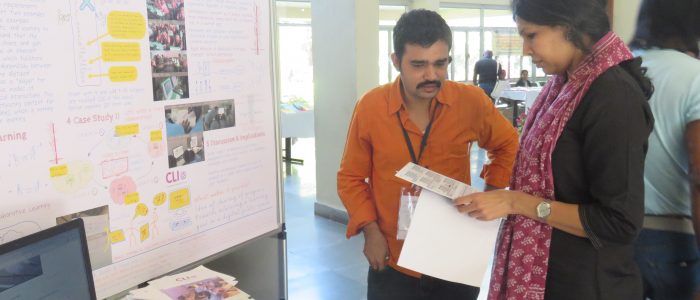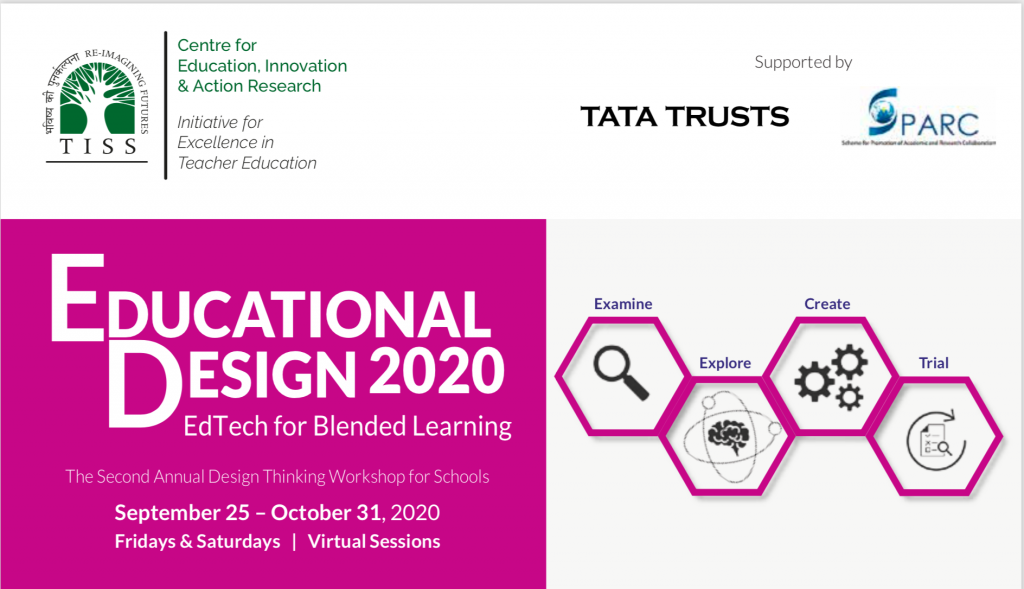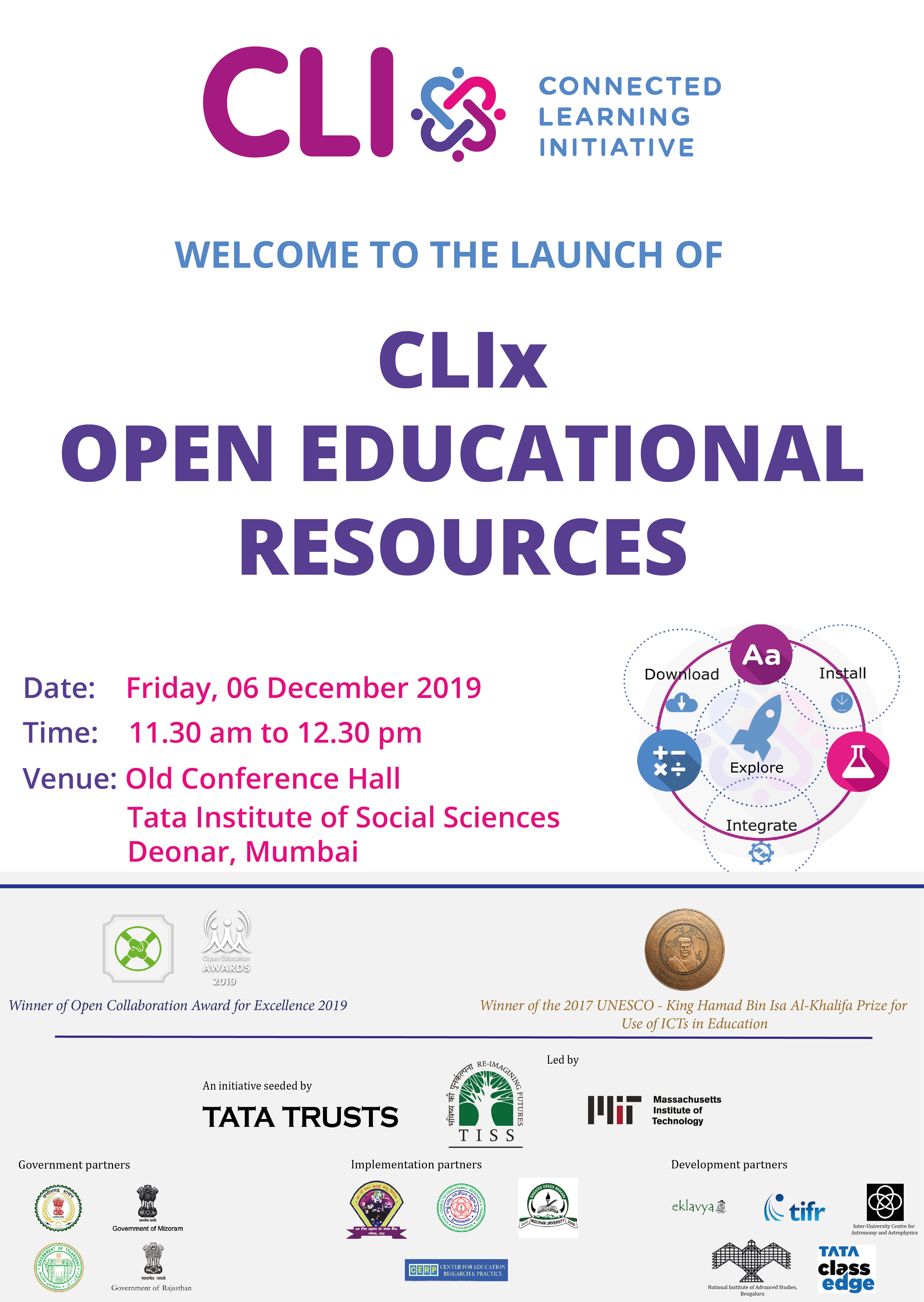Poster on Invitation to CLIx (I2C) at epiSTEME 7 Conference (05.01.18 – 08.01.18)
We attended the epiSTEME7 conference organised by the Homi Bhabha Centre for Science Education, Mumbai, to present a poster titled: Zone of Proximal Development in the Era of Connected Learning. This blog is about our experience at the epiSTEME 7 conference.
The conference had four major strands: 1. Historical, philosophical and sociocultural studies of STM; 2. Cognitive and affective studies of STME; 3. Curriculum and pedagogical studies in STME; and 4. Discipline-based education research with emphasis on undergraduate science education. The third strand had a sub-strand: the role of ICT in teaching-learning, and our paper was part of it. In our paper, we argued that Vygotsky’s idea of zone of proximal development (ZPD) needs to be re-conceptualised considering the recent developments in technology, especially the arrival of connected computers.
Vygotsky defined ZPD as the distance between the conceptual level at which the child is and the conceptual level the child can reach with some help from a teacher or an adult or more able peer. In that idea, a mentor is always at a higher conceptual level than the mentee. In our paper, we argued that learning can also happen through interaction between students at the same conceptual level where the interaction acts as a scaffold for further learning. We used observations made during the rollout of the Invitation to CLIx (I2C) module, particularly the use of Indic typing. Students created and shared their work through the CLIx platform. There was inter- and intra-group collaboration in the process. Temporary and permanent logs on CLIx platform created using the Comment, Notebook and Gallery features of the CLIx platform were helpful for students in learning. They used it to receive and give help to solve problems. We observed during theI2C module rollout that the role of mentor and mentee was dynamic. Different students played these roles at different times.
We got good feedback from many people at the epiSTEME7 Conference. Parvin Sinclair, the former director of NECRT, suggested that we should conduct delayed post-test to see if the students still remembered what they had learnt.
Rafikh Shaikh, Senior Research Associate, Science Team and Amit Dhakulkar, Assistant Professor, Invitation to CLIx Team, CLIx




